Have you ever wondered why some people achieve more than others? I mean, why do some kids receive higher grades than others? On the extreme end, how do some people become Olympic athletes, Nobel Prize winning scientists or billionaire investors?
When we see impressive achievement, many of us automatically think of explanations like: talent, luck, privilege, genetics, family connections, etc. Yes, all those things are definitely factors and they play a part in achievement, but science is now saying they may not be as important as we thought. 🤔
In this growthsummary.com Summary, we’ll be chatting about some of the big ideas in the book Grit by Professor Angela Duckworth. The book itself has three parts:
- Part 1 explores Duckworth’s research that says achievement is more about sustained effort than talent.
- Part 2 explains how we can grow our self-discipline, perseverance and commitment.
- Part 3 shares tips for helping others, which will be especially useful for parents, teachers and coaches.
Who is Angela Duckworth?
Angela Duckworth (her website) is a Professor at the University of Pennsylvania. Her career has taken her through many worlds: she worked as a McKinsey business consultant, then she became a public school teacher, and then she became a psychology researcher. She’s published many academic articles on self control and student achievement, saying her big goal is “helping children thrive.” Her 2013 TED Talk on “Grit: The power of passion and perseverance” has been viewed over 20 million times.
1. Talent vs Effort: What’s more important for success?
Our society loves the idea of natural talent. Some of the most popular tv shows ever are talent competitions like American Idol or The Voice. They’re based on the idea that people with exceptional natural abilities must be discovered, instead than the belief that skills can be improved over time with effort.
We always love to hear stories of effortless performance, child geniuses who were playing Mozart while still in diapers… Okay, I’m exaggerating. 😅 But only a little.
Angela Duckworth became a schoolteacher in her late 20’s and she quickly noticed something unusual. She expected the smartest kids to get the best grades, but this didn’t always happen. Yes, the smarter kids usually understood her math lessons quicker, but they didn’t always end up with the best grades. On the other hand, some kids struggled to understand, but they continued to work hard every day, and by the end of the year they were getting top grades.
(In fact, I was one of those kids who understood things quickly, at least in math class. Nevertheless, that little bit of natural talent did NOT automatically win me a Harvard Degree or Nobel Prize or most importantly… a date with my high school crush! 💔 )
Anyway, a few years later when Duckworth became a psychology researcher, she wanted to find out what was most important for achievement: talent or effort? She spent years doing research. For example, she studied new army recruits at the famously gruelling West Point Academy and children training for the highly competitive Scripps National Spelling Bee.
Long story short: she discovered higher achievement was about putting in more effort over time, a character trait she labelled “Grit,” which is really a mix of two things:
- Passion is staying interested in one thing for many years. (This is not the passion we usually think of, as an intense short-term emotion.)
- Perseverance is continuing to put in effort after failures, or despite long plateaus in progress.
How does grit look like in real life? I think the clearest description I’ve read of it was in The War of Art by Steven Pressfield. He’s a bestselling fiction author, but admits that he often struggles to sit down at his desk and be productive. He says that creative professionals must fight a battle every day against that “Resistance,” which means all the emotions that try to pull us away from writing like procrastination, self doubt, writer’s block, etc.
If you dream of doing creative work, but can’t seem to get started or finish, then that book is a fantastic guide. Here’s my favourite quote: “The most important thing about art is to work. Nothing else matters except sitting down every day and trying.”
Read more in our summary of The War of Art by Steven Pressfield
Our culture is obsessed with natural talent, but Angela Duckworth’s research has found that consistent effort matters more, which she labels grit. Grit is a combination of: remaining interested in one thing for years, and continuing to work despite failures/plateaus.
2. Growing Grittier: The science of increasing your ‘follow-through’
What we’ve learned so far is basically that “people who work harder achieve more.” Some online reviewers say this is basically common knowledge, and they’re right. But where this book gets more exciting is in Part 2, when Duckworth talks about scientific ways we can increase our grit.
First of all, can people’s basic character traits like grit really change? Angela Duckworth says yes, because our brains are more plastic than we think. One scientific proof for this is that average IQ scores have increased significantly over the last fifty years in dozens of countries. Most of us believe that people’s basic traits like intelligence are fixed in their genetics, but in fact we are highly influenced by our environment.
(I grew up with very strong social anxiety, and one of the first ideas that gave me hope was learning about the new science of “neuroplasticity,” which basically says our brain can learn form new connections. And yes, anxiety can be ‘unlearned’ with certain methods like cognitive behavioral therapy. And I now believe many traits that we see as part of who we are, are really mental habits that can be reshaped over time.)
At Stanford University, Professor Robert Sapolsky teaches a course on Human Behavioral Biology that explains the mechanisms by which our brains can be changed. For example, brain scans show people can learn to control their anxiety because the fear center of our brains (the amygdala) can be inhibited by the rational thinking part of our brain (the prefrontal cortex). He also says fully grown adults can continue to grow new neurons because of a process called neurogenesis, which is encouraged by exercise and learning.
And this may come as a shock, but even our genes are not set in stone! Yes, we all are born with certain DNA, but factors in our environment and upbringing can influence which parts of our genes are expressed. As an example, there is a certain gene that is connected with an increased risk of depression, but only when someone has gone through childhood adversity. Without experiences of adversity, that gene is not expressed or ‘activated.’ This is all part of a fascinating new science called epigenetics.
Believing that you can improve your life situation through your own effort is the foundation of growing your grit. Angela Duckworth calls this having hope, and she references two landmark ideas in the world of psychology:
- Learned Optimism by Martin Seligman, which is about how we interpret things that happen to us. When optimists face a challenge, they see it as temporary and look for ways to overcome it, but pessimists see themselves as being helpless to change their circumstances. This came from experiments in 1964, where Seligman discovered that under certain conditions, animals could “learn helplessness” and basically give up. In humans, optimists have better mental health and life success, and certain types of psychological resilience training (PositivePsychology.com) can help us learn to interpret events optimistically.
- Growth Mindset from Carol Dweck, which is the belief that we can change, even down to the most basic aspects of ourselves like our intelligence. The opposite of this is a fixed mindset, the belief that all our talents are set from birth and we can’t grow. Dweck’s studies found kids studied harder after they were encouraged to “try harder” and praised for their efforts, rather than when they were praised for intrinsic ability or praised no matter what.
Science shows our brains are changeable, even basic traits like IQ can be highly influenced by our environment or upbringing. The foundation of growing grit is having a growth mindset that we can always improve, and learning optimism to interpret challenges as being temporary and fixable.
3. Sustaining Passion: It’s about exploration, commitment and connection
I’m sure you’ve heard the advice to “follow your passion” at least one billion times already. Personally, I’m not a big fan of that phrase because it’s so abstract. I mean, what does that really mean? So I’m not going to ask you to jump up and down with passion as if you’re in a Tony Robbins event. 🥳
If you want to be gritty, then Duckworth’s research says a certain type of passion is critical. We usually think of passion as a burst of intense emotion, but in this book passion is about a long term enduring interest in something. It’s more like running a marathon than a 100 meter sprint.
So how can we build the right type of passion? Here are 3 hints:
- Explore many different directions, especially when you’re young. When I read the autobiography of Ray Kroc, the man who grew McDonald’s from one store into a global giant, I was surprised by how experimental his early years had been. As a young man, he’d tried opening a small music store, selling ribbon decorations, playing piano at clubs, assisting at a financial firm, selling paper cups and then distributing milkshake mixers. In fact, he was already in his 50’s when he discovered that first McDonald’s restaurant and began franchising it! Read more in our summary of Grinding it Out by Ray Kroc.
- Commit to one or two major top-level goals, forget the rest. At some point you must stop exploring, so you can focus and develop mastery in one thing. This usually requires sacrificing other interests because most of us can’t be excellent at several things at once, as we all have limited time and energy. Duckworth’s two major goals are “helping children thrive” in her work and being a great mother in her personal life. She is totally committed to those goals, but has many flexible sub-goals within her plan that could change.
- Connect your work to a purpose serving others. I’ve always thought about purpose as simply having a clear direction, but Duckworth convinced me that purpose is also always about contributing to others. Psychologist Amy Wrzesniewski has studied what makes the difference between a job, career and a calling. Her research found it’s less about your actual job title and more about how you see your work. Secretaries, plumbers, brick layers all find purpose in their jobs, if they believe they are contributing to the well-being of others.
Connecting to purpose or meaning is not just important for our happiness. In times of suffering, that can be the only thing that keeps us alive. In the 1940’s, Viktor Frankl was a Jewish psychologist living in Austria under Nazi control. He was sent to the concentration camps where millions of people died. The prisoners in those camps had everything taken away from them—family, identity, possessions, their whole lives, even down to their hair and their names. Then they were starved and forced to work.
It’s no surprise that many of those prisoners thought of committing suicide, and some went through with it. But Viktor Frankl managed to convince many of them not to go through with it. He had worked for many years at Austria’s largest mental hospital, and he knew the key to preventing suicide was helping someone to see a responsibility they still carried to someone or something outside themselves. For example, one prisoner decided to live when he was reminded of his child waiting for him outside the prison, another man decided to live because he saw that he still had important scientific work to finish.
Learn more in our summary of Man’s Search for meaning by Viktor Frankl
To become grittier, we must have passion, which in this book means an interest that lasts for many years in one direction. First you’ll need to explore many interests, then commit deeply to one, and finally connect it to a purpose contributing to others.
4. Becoming Great: Deliberate practice can lead to effortless flow
If you want to be a high achiever, then passion alone isn’t enough. Just because I’m passionate about cooking TV shows doesn’t mean I can cook a meal like Gordon Ramsay! However, we can develop our passions into expertise through deliberate practice.
Deliberate practice is not repeating something mindlessly; it’s about focusing intensely, targeting your weaknesses, getting corrective feedback, setting ‘stretch goals’ outside your current abilities, and endlessly improving. The idea comes from Anders Ericsson, a Swedish professor of psychology who discovered that most experts need at least 10,000 hours of this deliberate practice to become world-class at what they do.
To put that into perspective, 10,000 hours means 3 hours of effortful practice every day… for 10 years! I guess that’s why all those successful people say that we gotta find something we really love to do!
There is an idea in Japanese culture called kaizen, which means continuous never-ending improvement. If we want to achieve excellence, then we need to adopt that spirit of kaizen. We must always be asking ourselves: How can I do my work 1% better than I did yesterday? These little 1% improvements will multiply into tremendous gains over weeks and months and years.
After World War 2, most of Japan’s big cities were in terrible shape because they had been heavily bombed by the American forces. In the middle of that wreckage, a Japanese kid named Akio Morita cofounded Sony, which has now grown into one of the greatest electronics companies in the world. When Sony began, seeing the words “Made in Japan” on a product was a sign of low quality. Of course, now those words are a symbol of high quality and pride.
In his autobiography, Morita explains how that change occurred. In the 1950’s, there was a revolution in Japanese business and they largely adopted that philosophy of kaizen. For example, Sony strived to improve their manufacturing assembly lines so their products had fewer and fewer defects. He says that ironically, this idea of kaizen was first promoted in Japan by American thinkers like W. Edwards Deming, but Japanese companies adopted it with greater enthusiasm than Americans.
However, so far I’ve only mentioned one side of the story. This book also explores the idea called Flow that comes from psychologist Mihaly Csikszentmihalyi, who wrote about how high performance can often feel effortless, such as when athletes get into “the zone.” Well, flow almost sounds like the opposite of effortful deliberate practice! What gives? Duckworth believes that we need deliberate practice to develop our skills, so we can later perform in a state of flow.
Back in my school days, I learned how to play a few basic songs on the recorder flute and this is how it felt. Learning a new song was really hard, but once I had practiced a few days, my finger muscles learned where to go and could play the song almost automatically. But at 10 years old, I was only playing songs like “Mary Had A Little Lamb,” so take my musical expertise here with a grain of salt… 😉
To transform our passion into skill and achievement, we need deliberate practice. This means putting in hard effort and focus to become a little better every day. It includes receiving feedback, targeting our weak points and setting ever more challenging ‘stretch goals.’ Later, you may perform the skill in a state of effortless flow.
5. Nurturing Others: How to help those around us become grittier
Part 3 of this book is all about how to encourage those character traits of perseverance in others. Duckworth says parents often ask her for advice on how to raise kids with grit, and luckily she has some tips. Here are just 3 of them in short:
- Provide a supportive and demanding environment. 40 years of psychology research has shown that kids thrive best when they are raised with warmth, respect, but also high expectations. This means providing emotional support, while also encouraging kids to try harder and do better. Both sides are important, they aren’t contradictory.
- Sign up kids for extracurricular activities. Research shows that kids do better by many metrics when they are involved with organized activities outside school like sports, music, dancing, etc. Studies by Robert Eisenberger found that after doing one hard activity, both animals and kids put more effort into another activity, which hints that working hard is a trait that can be learned.
- Build a culture of growth and improvement. This tip is great for coaches or business leaders. The simple fact is that people around us shape us. Scientist Dan Chambliss studied top swimmers for many years. At first he was amazed they could wake up every day at 4am to practice swimming. But soon he realized it was easy when everyone around you was doing that too, it just became normal.
The business author Simon Sinek says that great companies create a culture by clearly communicating their WHY, which is their reason for existing beyond making money. This unites both employees and customers around a common mission. On the other hand, mediocre companies focus too much on WHAT they do or HOW they do it. For example, Apple’s commercials don’t talk about technical specs like gigabytes because that’s boring. Instead they communicate a story that Apple is about ‘thinking different’ and breaking the status quo.
To help others become more gritty, give them support with high expectations, sign kids up to extracurricular activities so they learn that deliberate practice can lead to improvement, and guide them to join a culture of people who are already gritty.
- Interpret a challenge you are facing in a more optimistic way. This means to look for reasons why it is temporary and fixable, instead of permanent and catastrophic. This begins with a growth mindset, the core belief that we can improve. For example, if I wanted to read more books but didn’t have time, then I would make a list of possible solutions like: learning speed reading tips or listening to audiobooks while exercising.
- Complete the 3 stages of finding your passion. Stage 1 is about exploring many different interests to find what sparks your fascination, usually best for people who are young and unsure. Stage 2 is about committing to one interest, going deep to build expertise. Stage 3 is connecting your passion to a purpose serving others, which is great for sustaining motivation over the long term.
- Schedule a daily time for deliberate practice. At first, this practice will feel very difficult, but over time it will become a habit that is almost automatic. Our summary of Deep Work by Cal Newport can help if you’re having trouble with this. Some of the most important ideas from that book are that we need to ruthlessly remove interruptions/distractions and we can build our concentration like a muscle.


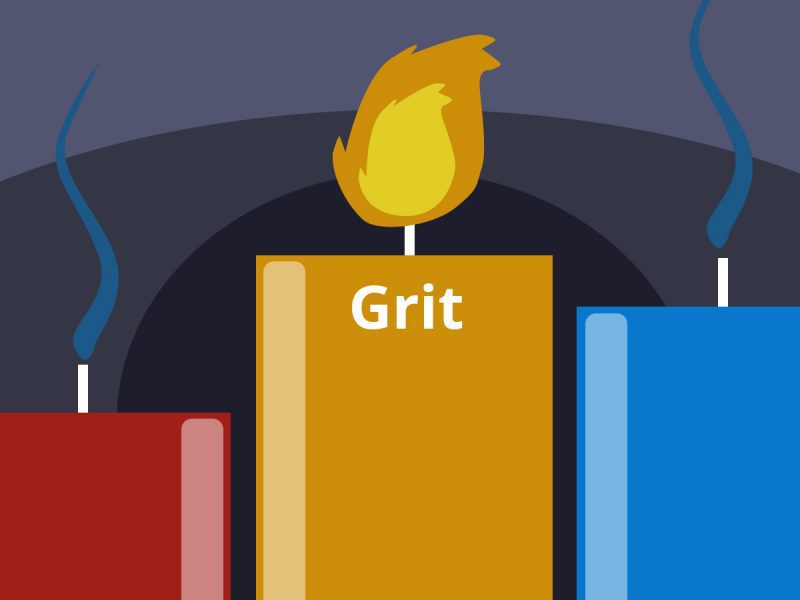
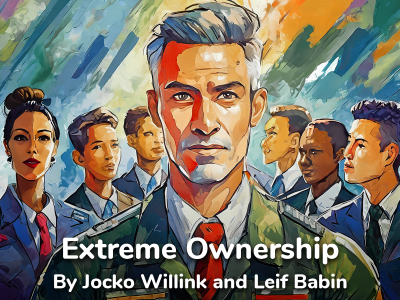

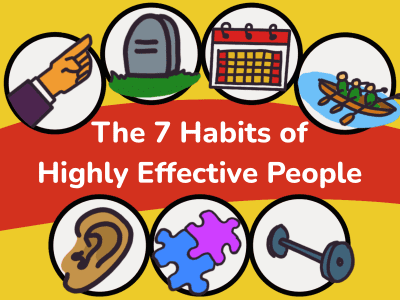
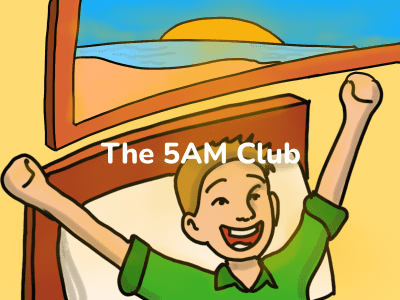






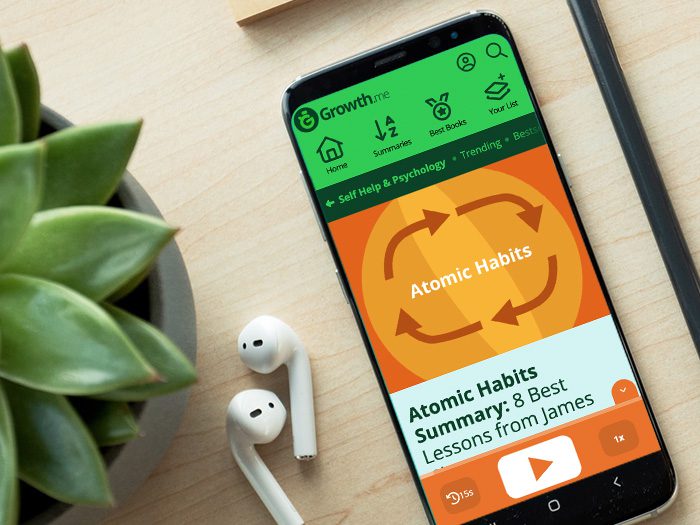
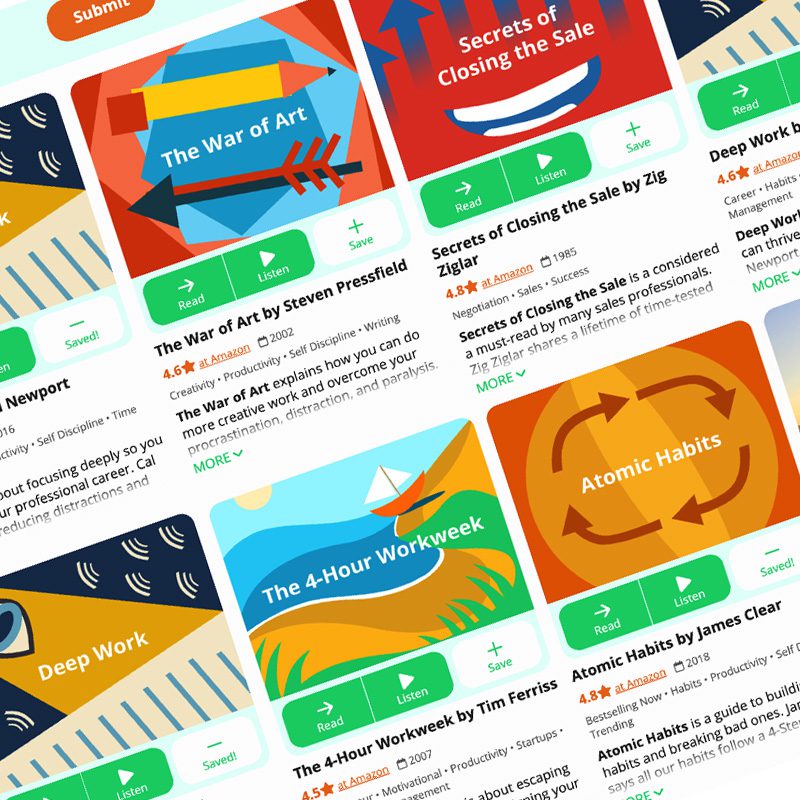
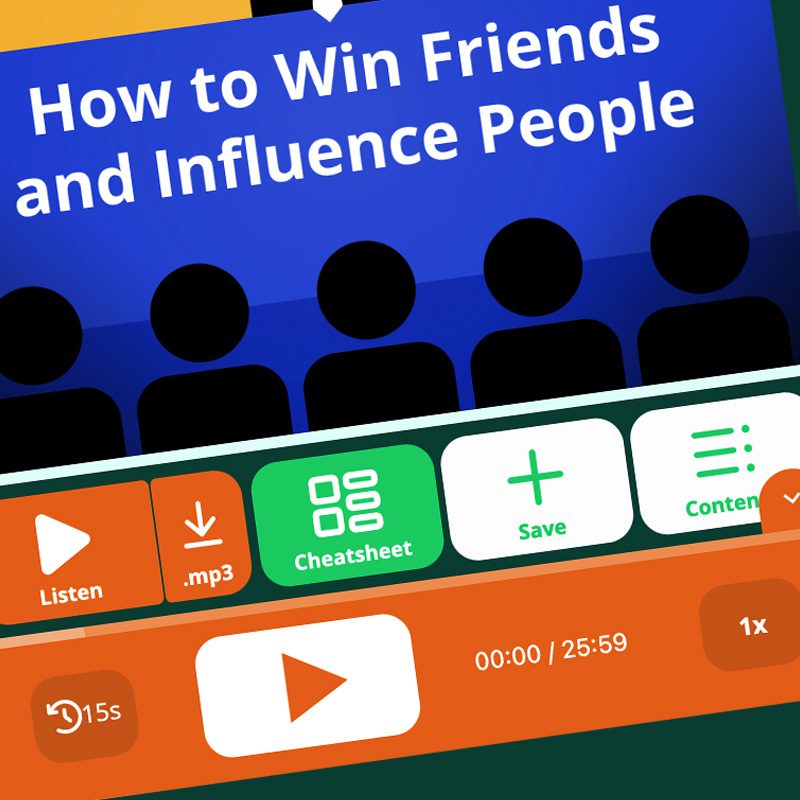
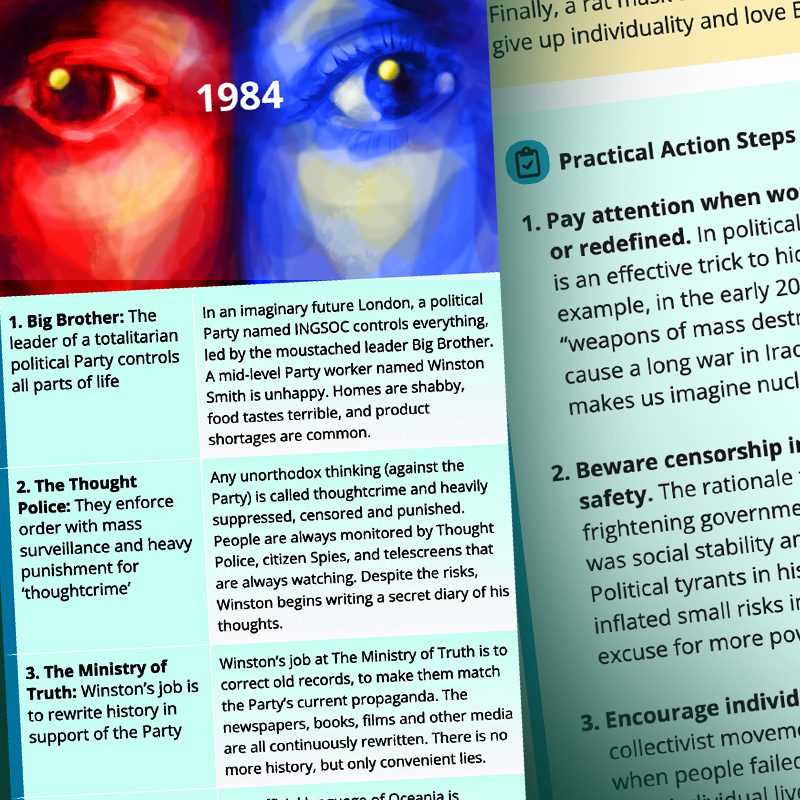


Community Notes